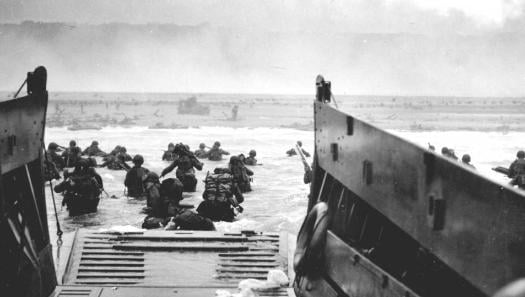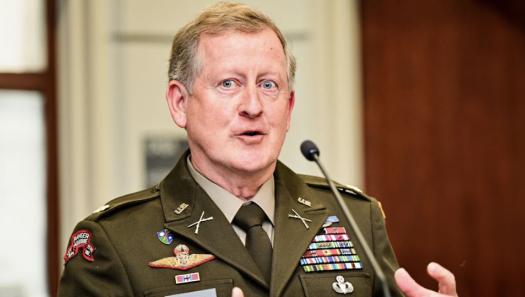Military & Veterans News
Vet News: War Trophies Can Be Illegal – and Dangerous
Spc. Randy Randolph

FORT BRAGG, N.C. -- Throughout history, soldiers serving overseas have returned home with souvenirs and relics to remember their tours. Many war- related items on display in museums were brought over by individual service members.
Although it is tempting for soldiers to bring back reminders of having served in a military campaign, there are strict guidelines regarding these trophies for troops participating in Operation Enduring Freedom.
"Different operations and areas of responsibility will have different rules on prohibited activity regarding souvenirs," said U.S. Army Special Operations Command Deputy Staff Judge Advocate, Lt. Col. Kevin Govern. "Aside from U.S. legal restrictions, there may be Department of Defense, unified command, and combined or joint task force regulations and orders proscribing certain activities and allowing others."
It is important for soldiers to realize that with few exceptions, taking or retaining individual souvenirs or trophies is prohibited in Afghanistan under Combined Joint Task Force-180 guidelines, Govern said.
"This prohibition does not include the lawful acquisition of souvenirs that can be legally imported into the United States," Govern said.
Soldiers should be careful when bringing personally acquired items back home because that property may have use for military intelligence or study, Govern said.
Private or public property may be seized during exercises or operations only on order of the commander, when based on military necessity, he said.
"Property that has been taken during specific operations should be collected, processed, secured, and stored for later return to the lawful owner," Govern said.
Soldiers are not allowed to bring weapons, munitions, or military articles of equipment back to the United States if those items were not officially issued, Govern said. Shipping weapons outside of the Central Command area as personal property is a punishable Uniform Code of Military Justice offense.
"There is a very narrow waiver of this prohibition," Govern said. "Antique firearms and replicas legally obtained in Afghanistan manufactured in or before 1898 are allowed."
Govern said that service members interested in purchasing an antique firearm and importing it into the United States should obtain a copy of the partial waiver under general order 1A, dated June 25 from their servicing judge advocate.
Staff Sgt. Brett Hutchings, 35th Signal Brigade network controller, followed general order 1A when he purchased an 1856 musketoon rifle in Afghanistan and had it shipped home. The antique weapon was used by the British in their war with Afghanistan in the late 19th century.
"Certain antique weapons are hard to find in this part of the world," Hutchings said. "When I found this one, I followed general order number 1A by contacting the provost marshal to get the proper documentation. I contacted the judge advocate general, filled out a sworn statement, and had the inspector general sign off on it. If I got stopped on the way back with this weapon, I knew I had documentation to let other people know I met the requirements."
"Whatever reason someone is bringing something back, all they have to do is follow the rules to the letter," Hutchings said. "Don’t try to interpret the rules yourself. Follow the regulations as they’re set up and nobody should have a problem."
Danger May Be Lurking
Fayetteville’s Airborne and Special Operations Museum Historian, Dr. John Duvall, said that although current regulations regarding what soldiers may bring back are very strict, it hasn’t always been as difficult for individual soldiers to bring war trophies home.
"During World War II and Vietnam, soldiers could bring semi-automatic weapons back. We’ve received a number of weapons from individuals, including explosives," Duvall said.
Duvall encourages current and retired soldiers to bring weapons to museums. He said that explosive items and old rifles sitting in storage can be very dangerous.
"Any weapon from any war should be turned in or disposed of properly," Duvall said. "We all like a souvenir to show our involvement in a conflict, but what better place to turn these items in than a museum? Having something associated with the battles our soldiers fought is important, it helps tell the story of what these soldiers did. These things really should be brought back through the proper channels."
Govern stressed that anyone violating Central Command or general order 1A guidelines will be punished under the UCMJ.
Soldiers with questions regarding what can be brought back to the United States from their individual areas of responsibility should contact a servicing judge advocate, military police customs office or the post office.
SOURCE: Army News Service via Veterans News and Information Service. Spc. Randy Randolph writes for the Fort Bragg Paraglide newspaper.


